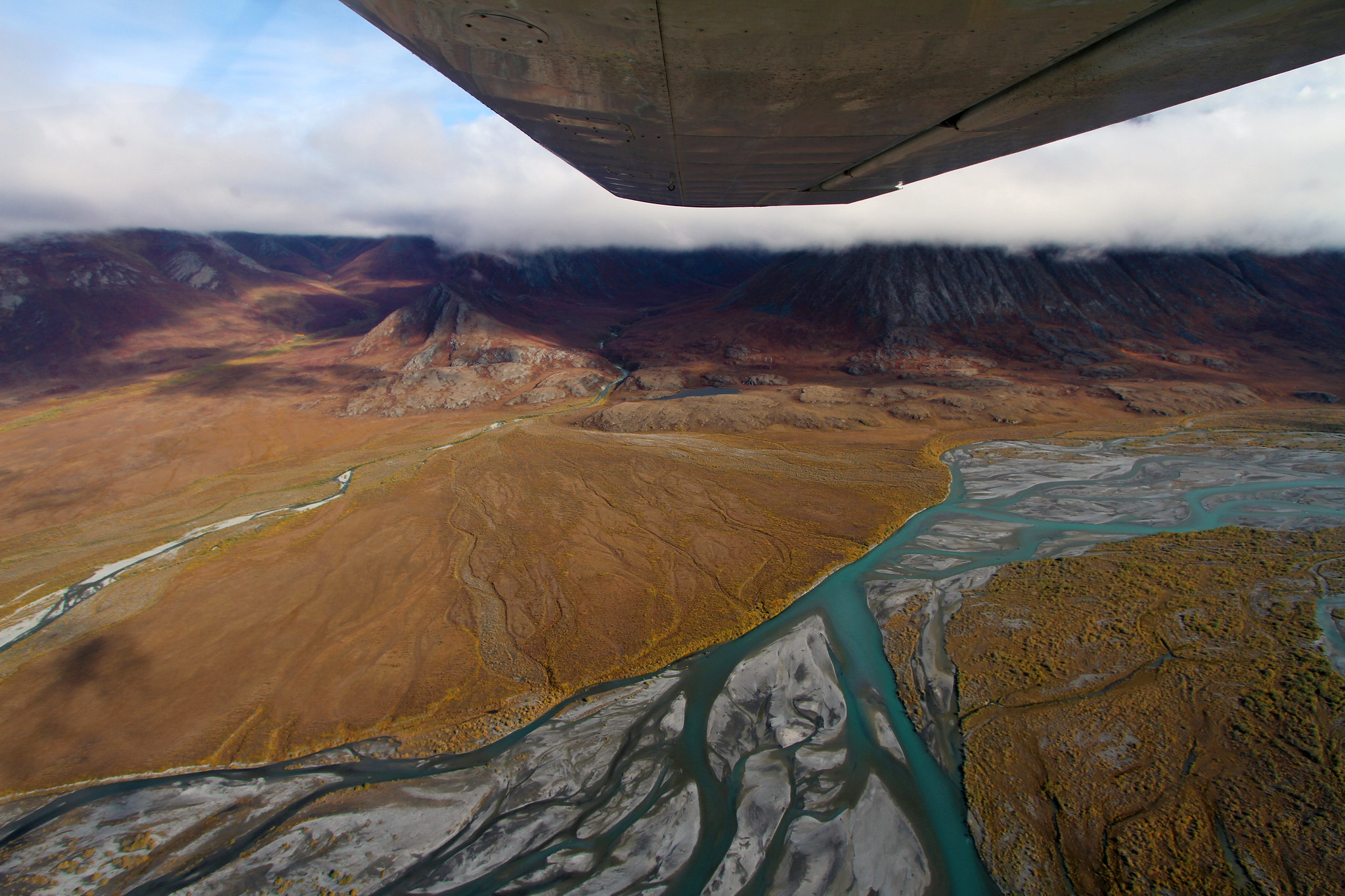AIDEA approves more spending as it seeks to open Arctic refuge for drilling
The Alaska state agency has earmarked money for lawsuits and other work in the Arctic National Wildlife Refuge.

Alaska’s state-owned development bank is continuing its efforts to open the coastal plain of the Arctic National Wildlife Refuge to oil and gas drilling.
Directors of the Alaska Industrial Development and Export Authority voted unanimously this month to spend $6.2 million on a second year of legal fees, lease payments and pre-development work related to drilling in the coastal plain.
A director speaking in favor of the proposal said he believes the land was promised to the state at statehood, and “we should have access to this land and be able to start developing this area. And I think it’s an overreach of the Biden administration for them to block any of our development.”
[With leases suspended, Alaska agency wants $6 million more for Arctic refuge drilling campaign]
The federal Department of the Interior suspended oil and gas leases within ANWR in summer 2021, but AIDEA sued later that year to overturn the suspension.
About $1.1 million was budgeted for litigation in this month’s plan, atop $800,000 spent to date. Other portions of the $6.2 million were reserved for lease fees and work needed for drilling permits.
Through December, the corporation had spent $13.8 million in an attempt to claim leases within the refuge, and the amount approved this month is the remainder of $20 million set aside by AIDEA for the ANWR leasing project.
Two other companies that bid on leases in the refuge have surrendered them to the federal government, leaving AIDEA as the only leaseholder. Last year, the federal Bureau of Land Management refunded an attempted lease payment by AIDEA, citing the Interior suspension.
A second lease payment is due Jan. 6, and with this month’s vote, AIDEA will attempt to make the payment, though corporation officials said they expect it too will be refunded.
The federal government, following legislation orchestrated by U. S. Sen. Lisa Murkowski, R-Alaska, held an oil and gas lease sale for parts of the refuge during the last days of the Trump administration.
When President Joe Biden entered office, he issued a temporary moratorium on oil and gas activity within the refuge. That was followed by the Department of the Interior’s lease suspension.
AIDEA sued the federal government, arguing that the suspension is illegal, and it’s since been joined in the lawsuit by the state of Alaska, the North Slope Borough, Kaktovik Inupiat Corp. and Arctic Slope Regional Corp.
The Native Village of Venetie, the Arctic Village Council, the Gwich’in Steering Committee and environmental organizations have joined the federal government in defense.
On Dec. 5, the state — represented by Colorado-based Davis Graham & Stubbs LLP — filed for summary judgment in the U.S. District Court for Alaska.
The summary judgment request states that Interior’s moratorium on development in ANWR “thwart(s) Congress’ express direction and instead pursue(s) political aims with no legal basis.”
The defendants are expected to file their own motion for summary judgment in early 2023.
A separate lawsuit by environmental groups and Democratic-led states challenging the legality of the lease sale is on hold pending the release of an environmental review of ANWR drilling, something expected in the first half of 2023.
Under the Murkowski-backed law, a second lease sale must be held by 2024.
This story was first published by Alaska Beacon and is republished here under a Creative Commons license. You can read the original here.
This article has been fact-checked by Arctic Today and Polar Research and Policy Initiative, with the support of the EMIF managed by the Calouste Gulbenkian Foundation.

Disclaimer: The sole responsibility for any content supported by the European Media and Information Fund lies with the author(s) and it may not necessarily reflect the positions of the EMIF and the Fund Partners, the Calouste Gulbenkian Foundation and the European University Institute.